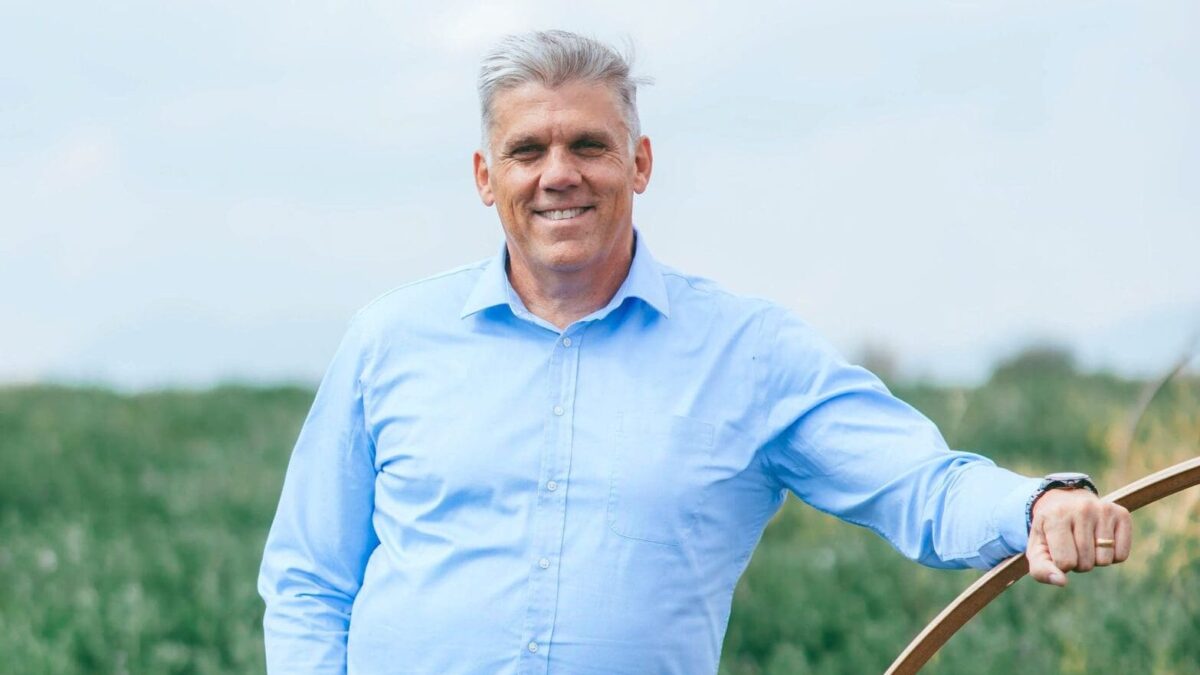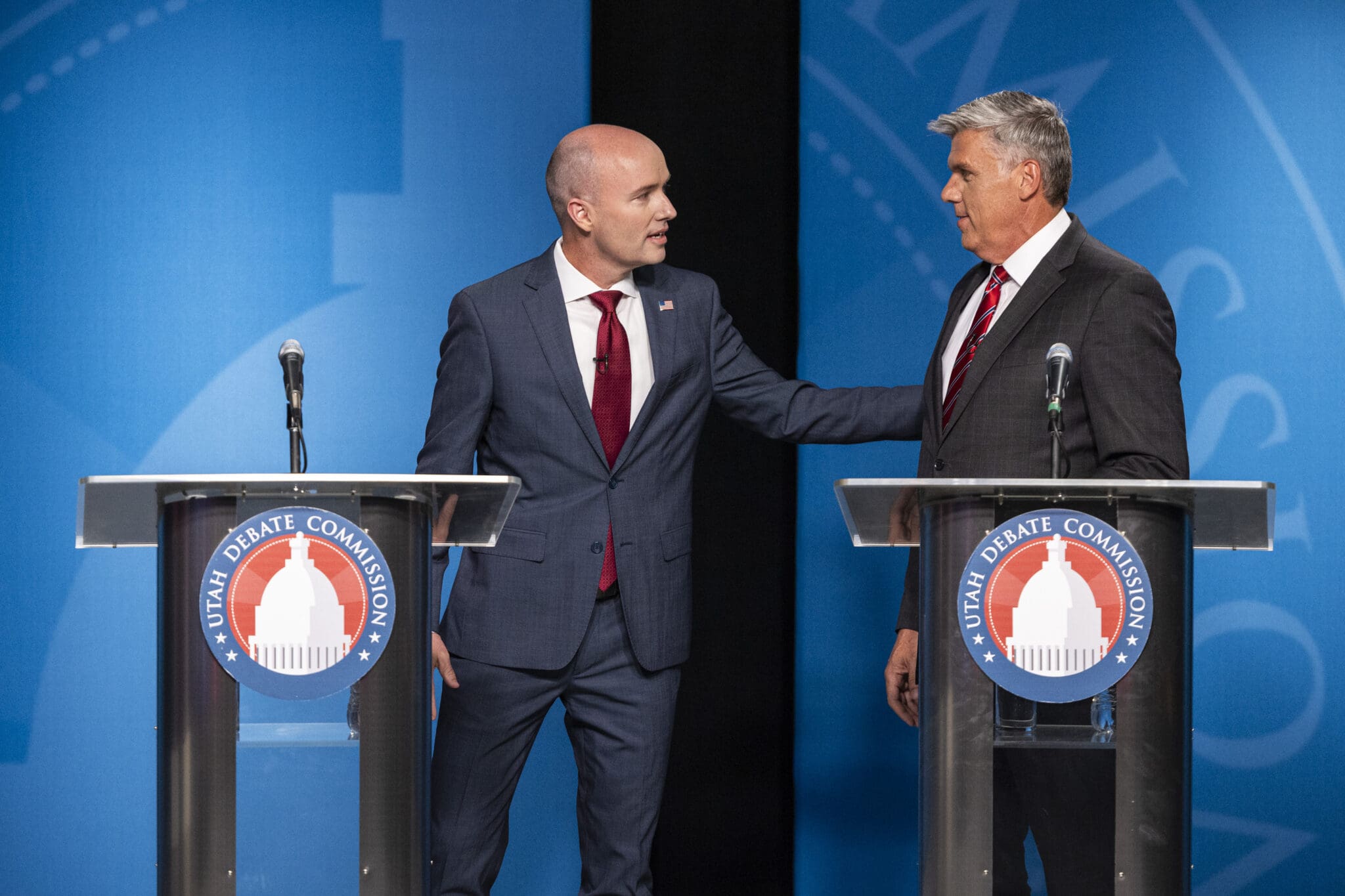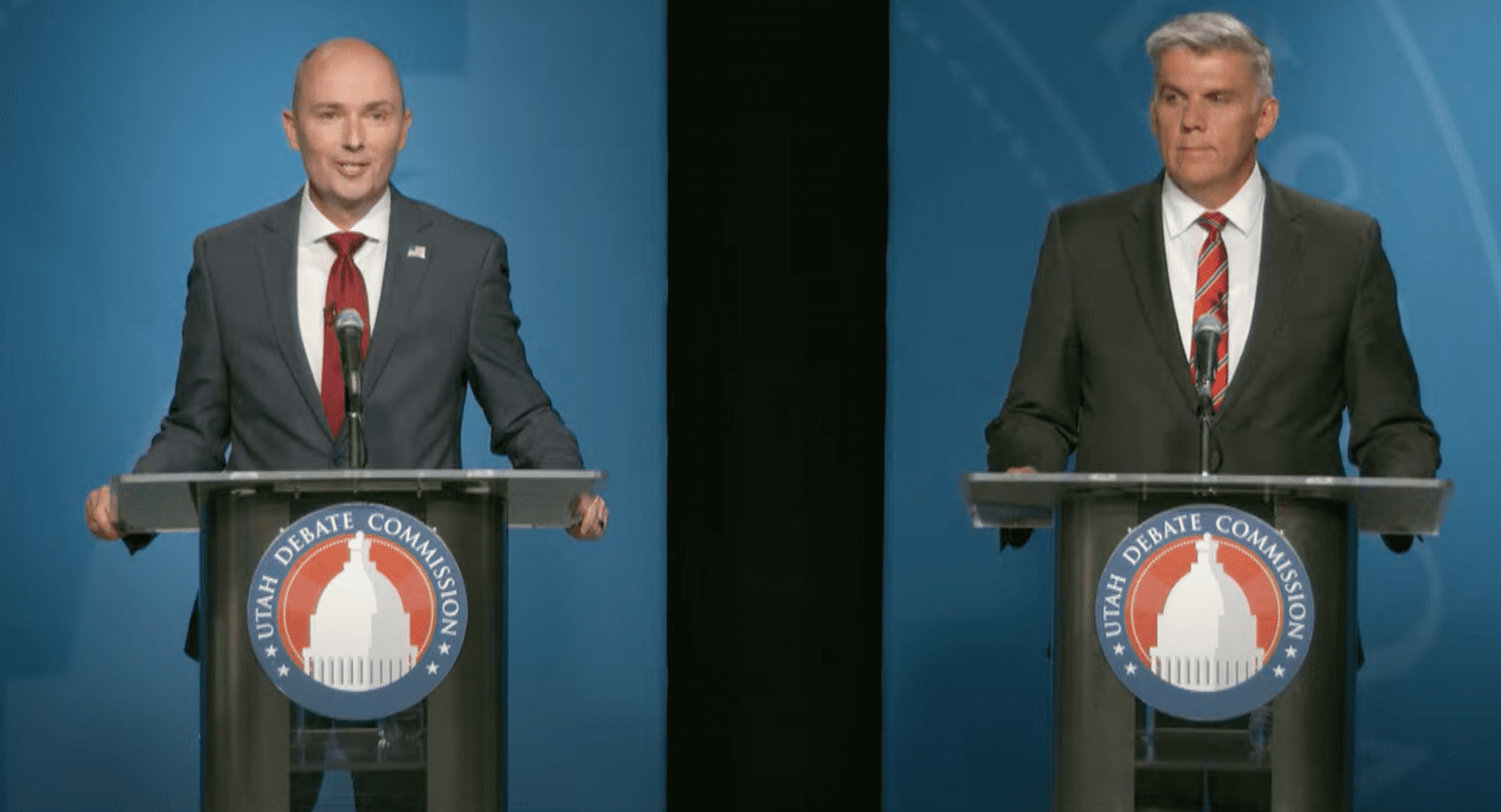Politics
Lyman blames DEI for Baltimore bridge collapse, but admits he didn’t write social media post

2024 Candidate for Governor, Phil Lyman. Photo: Lyman for Utah
By: Kyle Dunphey, Utah News Dispatch
Utah Republican Phil Lyman, an outgoing state representative and current gubernatorial candidate, suggested diversity, equity and inclusion programs were to blame, at least in part, for the collapse of the Francis Scott Key Bridge in Baltimore on Tuesday.
“This is what happens when you have Governors who prioritize diversity over the wellbeing and security of citizens,” reads a post from Lyman’s account over pictures of Karenthia Barber and Sandy Roberts, a Black man and woman who serve as Maryland Port Commissioners.
It’s the latest in a number of charged posts from Lyman on X, the platform formerly known as Twitter, drawing the ire of some of his colleagues. On Friday, Lyman wrote that “mass deportation is the only way” to stop what he called an “invasion” of non-citizens.
That post received pushback from several high-profile Utahns, including House Minority Leader Angela Romero, D-Salt Lake City, Sen. Mike McKell, R-Spanish Fork, and Rep. Andrew Stoddard, D-Midvale, who accused Lyman of demonizing immigrants.
The Francis Scott Key Bridge collapsed at about 1:30 a.m. on Tuesday after a container ship lost power and collided with it. Six people are still missing but presumed dead, the U.S. Coast Guard said Thursday evening.
Lyman, one of Utah’s most ardent pro-Trump lawmakers, has ramped up campaign rhetoric on social media since announcing his gubernatorial bid, accusing Gov. Spencer Cox of supporting liberal policies and turning Utah into a “sanctuary state” for undocumented immigrants.
He’s received some criticism, from both Democrats and Republicans. However, on Tuesday he admitted his staff write many of his social media posts.
“There’s some things I see, there’s some things I don’t see,” he told Utah News Dispatch. That includes the post Tuesday pointing the finger at the Maryland Port Commission and DEI initiatives.
“This one this morning, yeah, it took me a little bit by surprise,” Lyman said.
Still, Lyman stood by the sentiment and said he wasn’t going to apologize or retract the post.
“I’m not posting her because she’s a Black woman, I’m posting her because she’s an auditor of DEI,” he said, referring to Barber’s career history providing “leadership and workforce training, coaching, and diversity, equity and inclusion audits and consulting.”
“Correlation is not causation. I don’t think that I was saying DEI caused this bridge collapse. I’m saying you’ve got this DEI initiative that’s going in these places and then you clearly have human failures that create a disaster like this,” Lyman said.
In an interview on Tuesday, McKell said Lyman’s recent social media posts were part of a broader trend — he posts something inflammatory, critics push back and he claims they are misunderstanding his posts.
McKell has been a critic of Lyman, and in January, he called him out for voting “yes” on a bill extending health insurance to immigrants, then publicly condemning the law.
“The reality is, Phil says some really outrageous things online. People call him out and he backpedals and says he meant something else,” McKell said. “I think he’s looking for outrage. And when you call him out, he changes his tune.”
And Romero said Lyman has a different persona on social media than in person.
“The Phil Lyman I know and worked with on legislation, especially on Indigenous individuals who he’s been a big advocate for, and the Phil Lyman on Twitter, or X, are two different people,” she said.
Earlier this year, Romero said this legislative session was the most difficult of her career, citing a number of bills she said dealt with culture war issues rather than issues that impact Utahns. Among them was a bill restricting DEI programs in state universities and public institutions.
Romero on Tuesday said Lyman’s post was an “unintentional consequence” of that bill and the rhetoric in general around DEI.
“It’s very concerning to me the road we’re heading down, not only as a state, but as a country,” she said. “I think as elected officials, we need to start calling out some of this rhetoric.”


















